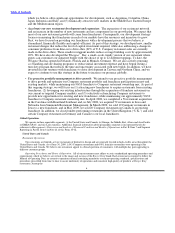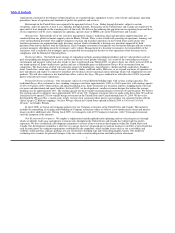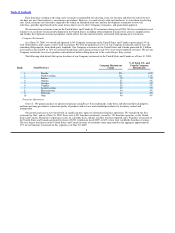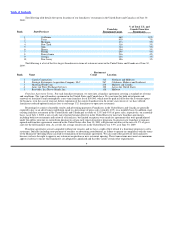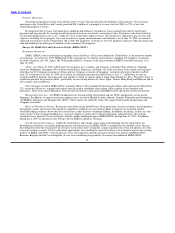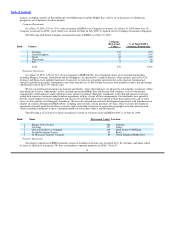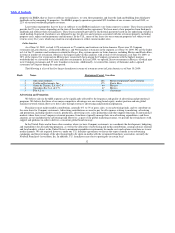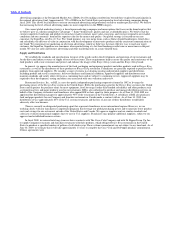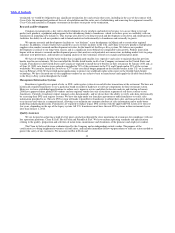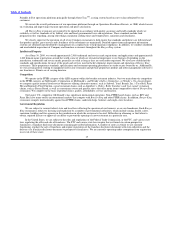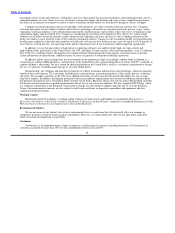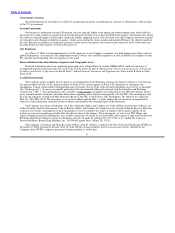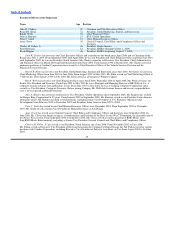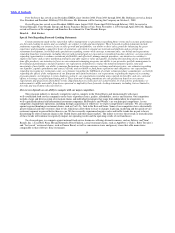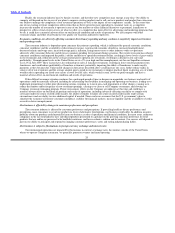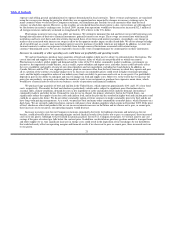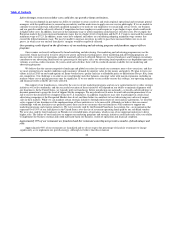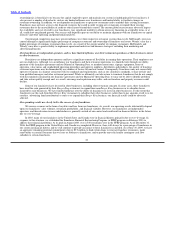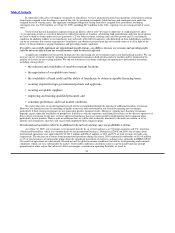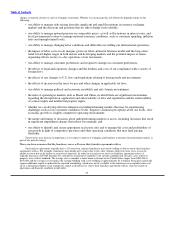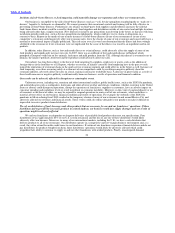Burger King 2009 Annual Report Download - page 18
Download and view the complete annual report
Please find page 18 of the 2009 Burger King annual report below. You can navigate through the pages in the report by either clicking on the pages listed below, or by using the keyword search tool below to find specific information within the annual report.
Table of Contents
based upon our net worth and experience. Substantive state laws that regulate the franchisor/franchisee relationship presently exist in a
substantial number of states. These state laws often limit, among other things, the duration and scope of non−competition provisions,
the ability of a franchisor to terminate or refuse to renew a franchise and the ability of a franchisor to designate sources of supply.
Company restaurant operations and our relationships with franchisees are subject to federal and state antitrust laws. Company
restaurant operations are also subject to federal and state laws governing such matters as consumer protection, privacy, wages, union
organizing, working conditions, work authorization requirements, health insurance and overtime. Some states have set minimum wage
requirements higher than the federal level. Congress is considering the enactment of the Employee Free Choice Act, which would
eliminate secret ballots for union elections, require shorter union campaigns and faster elections as well as binding arbitration if the
parties are unable to agree upon the terms of the collective bargaining contract. Congress is also considering health care legislation that
would require employers to provide and contribute to health care coverage for their workers or pay a new tax equal to 8% of payroll. If
these bills are enacted into law, our operating results and the operating results of our franchisees could be impacted significantly.
In addition, we may become subject to legislation or regulation seeking to tax and/or regulate high−fat, high−calorie and
high−sodium foods, particularly in the United States, the U.K. and Spain. Certain counties, states and municipalities, such as California,
New York City, and King County, Washington, have approved menu labeling legislation that requires restaurant chains to provide
caloric information on menu boards. Additional cities or states may propose to adopt menu labeling regulations.
In addition, public interest groups have focused attention on the marketing of high−fat and high−sodium foods to children in a
stated effort to combat childhood obesity, and legislators in the United States have proposed legislation to restore the FTC’s authority to
regulate children’s advertising. We have signed an advertising pledge in the United States, which is a voluntary commitment to change
the way we advertise to children under the age of 12 in the United States.
Internationally, our Company and franchise restaurants are subject to national and local laws and regulations, which are generally
similar to those affecting our U.S. restaurants, including laws and regulations concerning franchises, labor, health, privacy, sanitation
and safety. For example, regulators in the U.K. have adopted restrictions on television advertising of foods high in fat, salt or sugar
targeted at children. In addition, the Spanish government and certain industry organizations have focused on reducing advertisements
that promote large portion sizes. The federal public attorney in Sao Paulo, Brazil has filed a civil lawsuit against Burger King and other
fast food restaurant companies to prohibit promotional sales of toys in our restaurants in Brazil. We have signed the EU Pledge, which
is a voluntary commitment to the European Commission to change our advertising to children under the age of 12 in the European
Union. Our international restaurants are also subject to tariffs and regulations on imported commodities and equipment and laws
regulating foreign investment.
Working Capital
Information about the Company’s working capital (changes in current assets and liabilities) is included in Management’s
Discussion and Analysis of Financial Condition and Results of Operations in Part II, Item 7 and in the Consolidated Statements of Cash
Flows in Financial Statements and Supplementary Data in Part II, Item 8.
Environmental Matters
We are not aware of any federal, state or local environmental laws or regulations that will materially affect our earnings or
competitive position or result in material capital expenditures. However, we cannot predict the effect on our operations of possible
future environmental legislation or regulations.
Customers
Our business is not dependent upon a single customer or a small group of customers, including franchisees. No franchisees or
customers accounted for more than 10% of total consolidated revenues in fiscal 2009.
16


